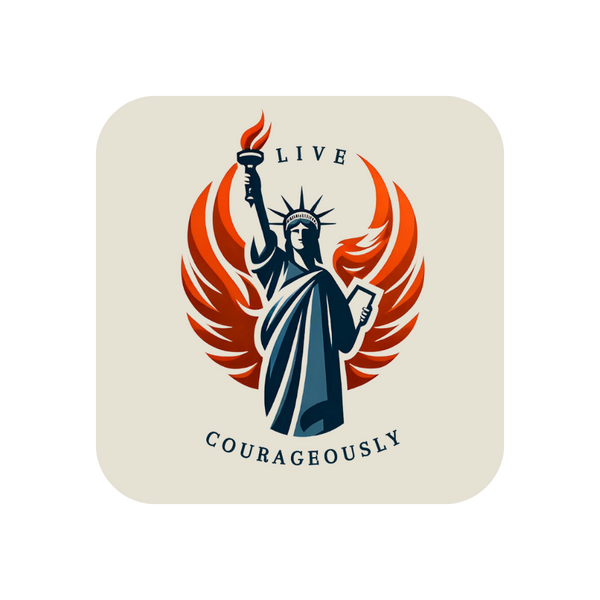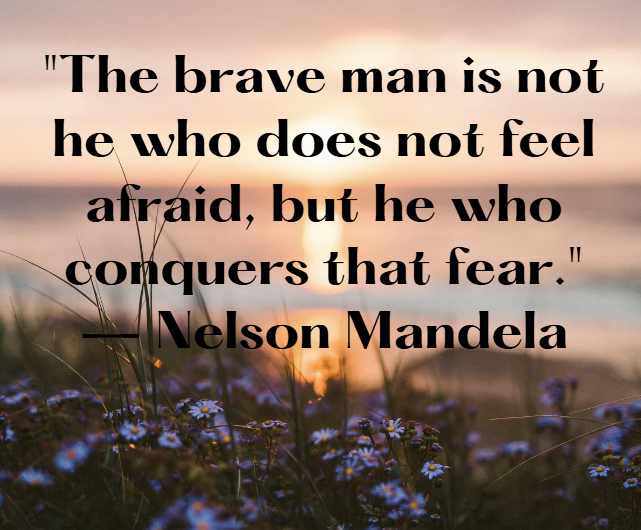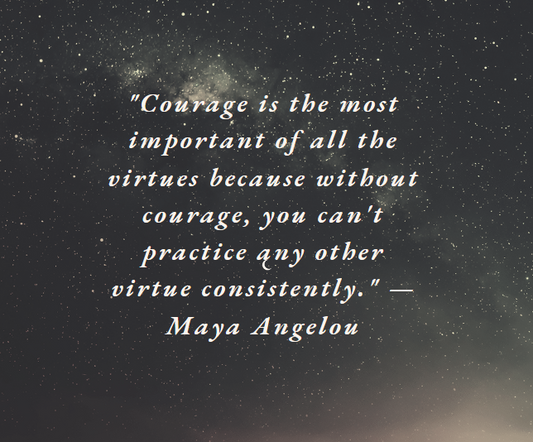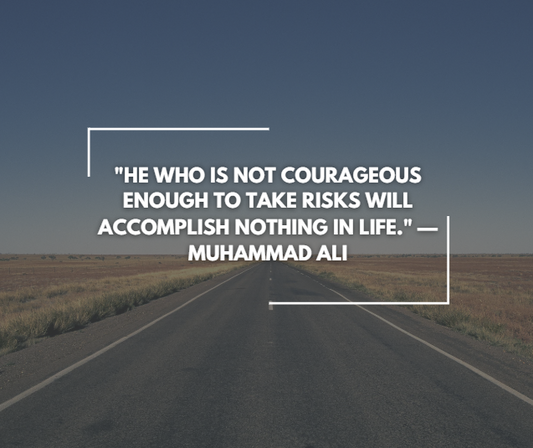Nelson Mandela’s profound statement, “The brave man is not he who does not feel afraid, but he who conquers that fear,” encapsulates the true essence of bravery. This quote sheds light on the distinction between the absence of fear and the courage to overcome it, offering a more nuanced understanding of what it means to be truly brave.
Understanding the Nature of Fear
Fear is a natural and universal emotion that everyone experiences at various points in their lives. It is an instinctive response that can protect us from danger, but it can also hinder our progress if left unchecked. Mandela’s quote highlights that bravery is not about the elimination of fear but rather the ability to confront and manage it effectively.
-
Fear as a Natural Response: Fear is a fundamental human experience, often triggered by the unknown or by perceived threats. It serves a protective function but can also become an obstacle when it prevents us from taking action or pursuing our goals.
-
Conquering Fear vs. Eliminating It: The goal is not to completely eradicate fear but to learn how to manage and overcome it. True bravery involves facing fear head-on, understanding it, and using it as a catalyst for growth rather than allowing it to paralyze us.
The Role of Conquering Fear in Bravery
-
Facing Challenges: Conquering fear involves taking deliberate actions despite feeling afraid. It requires acknowledging the fear and still choosing to move forward. This process transforms fear into a powerful motivator and helps individuals tackle challenges with determination and resolve.
-
Personal Growth: Overcoming fear often leads to significant personal growth. Each time we face and conquer our fears, we build resilience, confidence, and a deeper understanding of our capabilities. This growth contributes to our overall strength and ability to handle future challenges.
Examples of Bravery in Conquering Fear
-
Historical Figures: Nelson Mandela himself is a prime example of conquering fear. His fight against apartheid involved immense personal risk and fear. His courage lay in his ability to face these fears and persist in his struggle for justice and equality, ultimately leading to profound societal change.
-
Everyday Heroes: Everyday individuals also demonstrate bravery by conquering fear. For instance, someone who confronts a personal phobia, such as public speaking or flying, and takes steps to overcome it shows a remarkable level of bravery. Their courage lies in their willingness to face their fears and take action despite their anxiety.
Cultivating the Ability to Conquer Fear
-
Recognize and Acknowledge Fear: Understanding and acknowledging your fears is the first step in overcoming them. By recognizing what you are afraid of, you can begin to address and manage these fears constructively.
-
Develop Coping Strategies: Implement strategies to manage fear, such as mindfulness, breathing exercises, or seeking support from others. These techniques can help you maintain focus and composure in the face of fear.
-
Take Incremental Steps: Conquer fear gradually by taking small, manageable steps toward your goals. Each step forward, no matter how small, helps build confidence and reduces the overall impact of fear.
-
Embrace Failure as Learning: Understand that failure is a natural part of the process. Each attempt, whether successful or not, provides valuable lessons and contributes to your ability to conquer fear in the future.
Nelson Mandela’s quote illuminates a crucial aspect of bravery: it is not the absence of fear but the ability to confront and conquer it that defines true courage. By understanding and managing our fears, we transform them from obstacles into stepping stones for personal growth and achievement. Conquering fear involves acknowledging its presence, developing coping strategies, and taking courageous actions despite the discomfort. Through this process, we not only demonstrate bravery but also enhance our resilience, confidence, and capacity to face future challenges.





